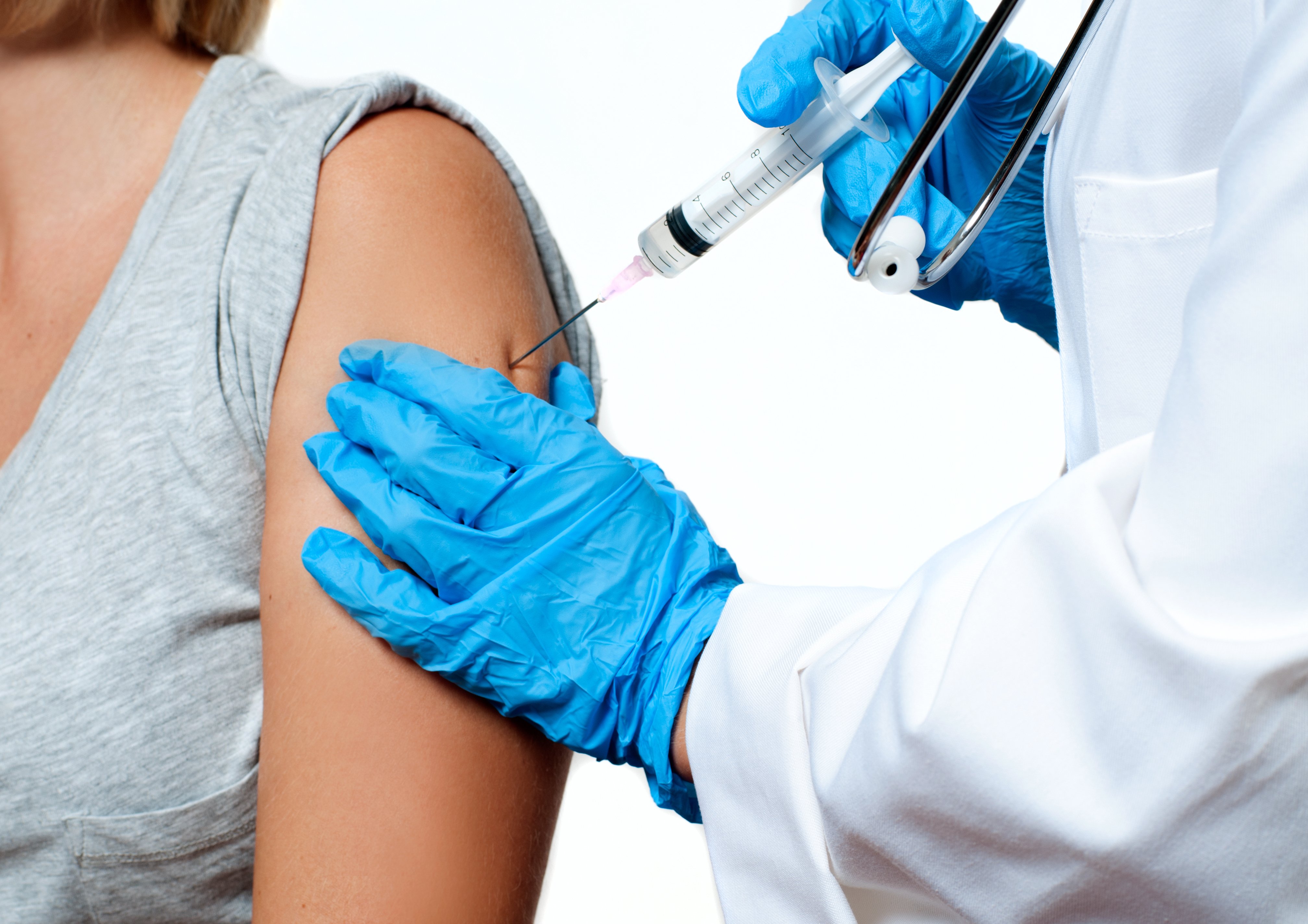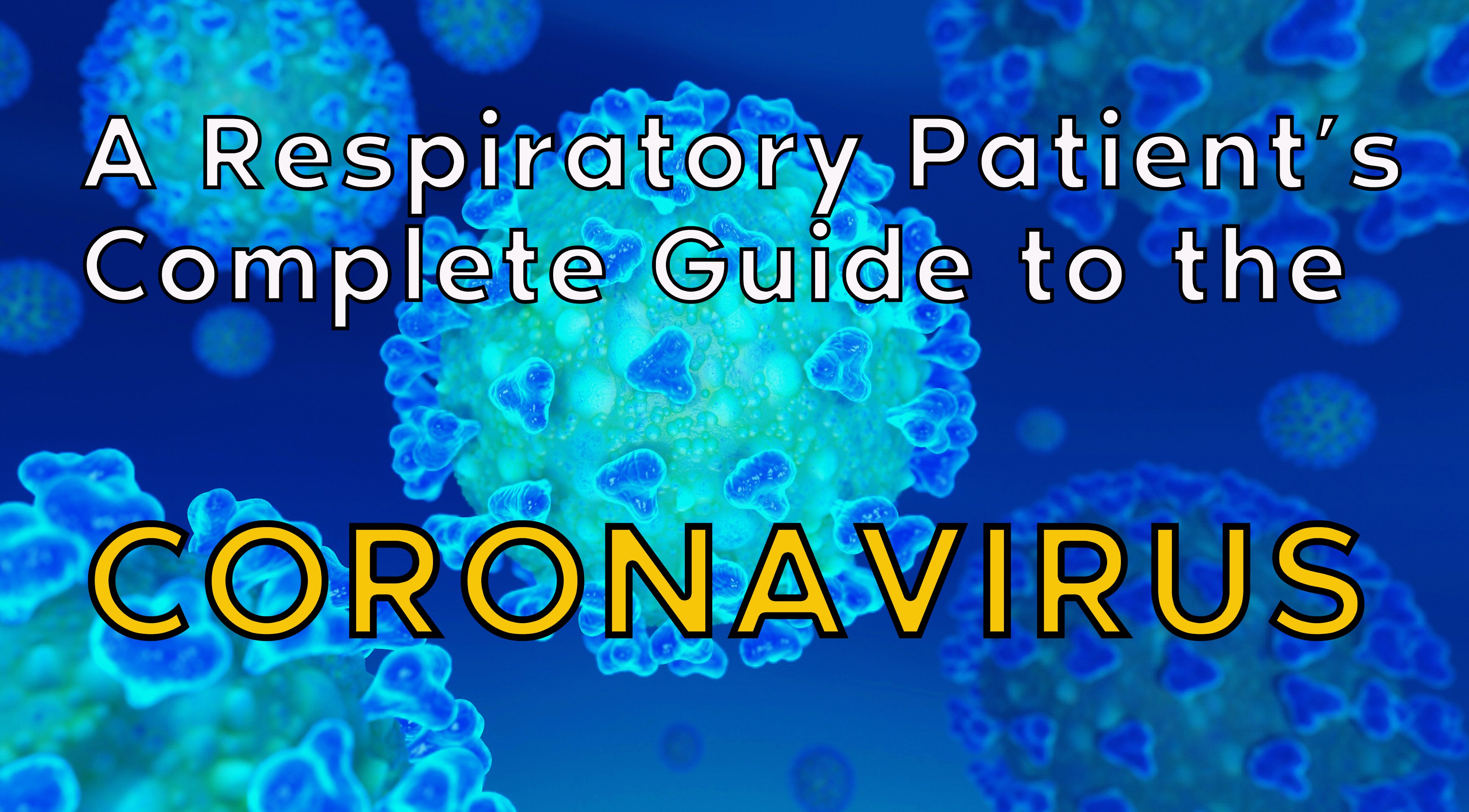What Exactly is a Pandemic?
When a sickness or disease is found in several people within a short period of time you will often hear that an outbreak of a certain condition has happened. If the outbreak continues unabated it is said to be an epidemic.
The word pandemic comes from the Greek Pandemos. Pan meaning “all” and Demos meaning “people” so a pandemic simply refers to an outbreak or epidemic that has spread to a wide geographic area.

If the Coronavirus had stayed contained in China it would have been classified as an epidemic, but as it stands now it has been seen in 151 countries and territories around the world and is therefore classified as a pandemic where all people, so to speak, may be at risk.
You may have also heard that the state where you live has declared the situation a state of emergency. What does that mean?
States have funds set aside for emergencies that are not available for everyday use. Depending on the state, if the government wants to use certain funds or resources it must be authorized by voters, state and local councils or some combination of all of those. In addition, we, as citizens have certain constitutional rights that states are not allowed to infringe upon in regular circumstances. By declaring a state of emergency a state has the ability to access emergency funds, divert resources, and in some cases place restrictions on its citizens that it might not ordinarily be allowed to.
In the case of the Coronavirus for example, states may access emergency funds to set up testing or care facilities, authorize overtime for state run labs to analyze results, and restrict citizens by shutting down certain events where large crowds might gather such as a sporting event or holiday parade.
Under normal circumstances they wouldn’t be allowed to do any of these things but since a state of emergency has been declared, they have certain relaxed restrictions and expanded rights. Once the state feels that the threat has been contained, they will cancel the state of emergency and state procedures and citizen rights will return to normal. The term doesn’t have to do with the disease itself per se, it’s just the state trying to give itself the flexibility to do what they feel is necessary to keep everyone safe.
National State of Emergency
In the recent days the president has declared a national state of emergency. This simply means that emergency funds and resources are now available to help states fight the virus and that states can ask for the federal government to shoulder some of the finanicial burden of getting the spread of the virus under control.
Now moving on to the virus itself.
This may be the first time you‘ve heard of the coronavirus but they have actually been around for thousands of years. As a matter of fact almost everyone has been infected by a coronavirus at some point during their lifetime. This is more commonly known as catching a cold.
However, some coronaviruses are classified as novel viruses, meaning they are newly discovered and in some cases are more severe and virulent than others. SARS and MERS and the current strain of COVID-19 are all strains of the same type of virus that causes the common cold but this particular strain is new and so we are still trying to learn more about how it spreads and how to treat infections.
Vaccinations

As you know, if your body is exposed to a virus it will develop an immunity to it, at least for a period of time. This is the science behind the flu shot and vaccinations in general. But these novel viruses can become widespread because they are new and therefore no one has developed an immunity to them as yet and we just don’t know all the particulars of how they spread.
Epidemiologists around the world are working as fast as they can to come up with a vaccination for the Coronavirus. These things can't be rushed though because extensive testing has to be done before vaccines are widely distributed.
How is the Virus Spread?
The new coronavirus, like most viruses spread primarily from an infected person through respiratory droplets that become airborne when a person coughs or sneezes. Viruses can also be spread if someone touches a contaminated object and then touches their mouth, eyes, or nose. In the case of SARS, MERS, and the new coronavirus 19, there have also been a few documented cases of the virus passing from infected animals to people.
If Infected How Long Does it Take to Get Sick?
Some people who have contracted the new coronavirus can go for days without exhibiting any symptoms. Some may even never develop symptoms but may still be contagious. This of course makes it tricky to contain.
The average time that it takes people to become sick after exposure, is 5 days. The current quarantine safety period is 14 days.
Because this strain of coronavirus is newly discovered, information will increase and evolve over time but here’s what we know now.
COVID-19, more commonly known as coronavirus is a lower respiratory tract infection, meaning that most of the symptoms are felt in the chest and lungs. When you have a common cold, it is an upper respiratory infection meaning that your nose is likely running like a faucet, or it’s stopped up and you’re having trouble breathing.
Cold vs. Flu vs. Allergies vs. Coronavirus
When you have a lower respiratory infection, mucus is building up in your chest and lungs making you cough. If you’re battling a respiratory illness, or have a compromised immune system you should contact your doctor anytime you are feeling ill but if you wake up sneezing with a runny nose, you most likely just have a cold. If you have a high fever and cough you could have something more serious such as the flu, or the new coronavirus. Keep in mind that this is the time when we begin seeing seasonal allergies as well. If you have itchy, watery eyes, sneezing, and a scratchy throat you are probably suffering from allergies, especially if these symptoms come and go.
Extra precautions should be taken if you develop respiratory symptoms have been exposed to someone suspected of having the virus or if have traveled to, or had contact with, someone who traveled to China, Italy, Iran, Japan or South Korea or. You should also be extra cautious if the virus has been widespread in the area where you live.
The most common symptoms of coronavirus are a high fever and a dry cough. As with any fever you’ll likely feel a little drained and as the sickness progresses you’ll may be coughing up thick mucus from your lungs and in more serious cases you may even feel short of breath. Some less common symptoms reported are joint pain, headache, and chills. So far, about 80% of people known to have been affected by this virus have had mild to moderate symptoms and were able to manage their symptoms at home for the most part.
How Many People Have Coronavirus Worldwide?
As of right now there have been nearly 170,000 total cases. currently there are roughly 86,000 active cases, around 77,000 have recovered. and unfortunately 6,492 died. Of the active cases, just under 6,000 have been classified serious or critical. There is a broad range of severity of the rest from asymptomatic, to managing care at home, to being treated for pneumonia. The number of active cases are expected to rise in the coming weeks largely because testing is expected to become more widespread.
Who is at Greatest Risk?
People most likely to develop complications are young children, people over 65, or pregnant women. Those with cardiovascular disease, auto-immune illnesses, respiratory conditions, and diabetes are also at a greater risk. Even if you’re not in the high risk category, be proactive and don’t self-diagnose.
What to do if You Think You Have Coronavirus
If you suspect that you may have the coronavirus call your doctor. Please don’t just show up at the office. They need to know that you are coming so that they are properly prepared to isolate you from other patients and so that healthcare workers can take proper precautions. Many doctors don’t have methods for testing yet so they may have to refer you to another facility.
Testing
In some areas they aren’t testing people who don’t meet certain exposure criteria. The tests are still being developed and refined but if you meet these criteria you will likely receive a nose or throat swab. In some cases doctors may take a blood and sputum sample. You will then have to stay in quarantine for a period of days while you await results. The latest estimate from the CDC is that test results will take approximately 2 days.
Staying Healthy
If you’re healthy now, how do you stay that way? Introverts rejoice! You social animals, you’re not going to like this.
The jury is still out on whether the corona virus is airborne or not but Most viruses are not. This means that they don’t live in the air very long after being coughed or sneezed out. However they do live on tables, hands, doorknobs and other surfaces and- people in compact groups are more likely to infect one another.
Viral Spread Risk
For instance, in Massachusetts there was a biotech conference from February 25th to the 27th that gathered about 175 people. It has since been reported that 104 of the 164 confirmed cases of coronavirus in Massachusetts have been linked to this meeting. An additional 12 people who have tested positive out side of Massachusetts also have ties to this conference. It just shows how one large gathering can greatly increase the spread of the virus. These people either contracted the virus directly at the conference or got it from an attendee via person to person contact or handling something that they touched.
It’s these types of incidents that prompted many sporting events and other large group activities to cancel. As of now the CDC is advising against holding any gatherings of 50 or more.
Stay Home!
The efforts that we make today and in the next couple of weeks are going to greatly impact the spread of the virus in any given area. Social distance and practicing proper hand washing are essential. If you are in the high risk group you shouldn’t be going out at all if possible.
Social Distancing
If you do go out in public try to maintain at least a 3 foot distance from others. Remember it’s possible to infect others even without exhibiting symptoms. You don’t necessarily have to stay locked in your house. By all means go for a walk or a drive. Take your pooch to the park. You simply should avoid places where you are likely to be within three feet of others or are going to touch something that other people have touched.
Limit exposure to crowds, in places such as on public transportation or in grocery stores or restaurants. Instead of marketing weekly, the CDC is recommending buying enough for 21-30 days.
Some stores have free delivery or shopping services where you can shop online and they will gather your items for pickup. which means, No standing in line in close proximity to others, and no touching shopping carts or credit card swipers.
In addition to groceries remember to keep ample supplies of your medications on hand.
Do not Hoard Resources!
The hoarding and panic buying of water, cleaning products, and toilet paper is completely unnecessary. There is no reason to think that our supply chain of basic necessities will be interrupted in the foreseeable future and this kind of behavior is going to cause more unnecessary problems especially for the elderly and more vulnerable portions of the population.
In order for all of us to stay safe, the people delivering our mail, stocking our grocery shelves, providing health care, and all of our friends and neighbors need to be able to wash their hands and clean their environments as well. Please only buy what you need and share if you are able.
Keep Your Distance!

Handshaking is discouraged until this pandemic is contained. Opt for some other form of greeting. Namaste, Konichiwa, or Live Long and Prosper are all great options!
Cook Thoroughly
Also keep in mind that since there has been known animal to human infection, avoid visiting farms, barns, petting zoos, or agricultural fairs. If you do go to any of these places wash your hands well. It’s also important that you cook any meet and eggs thoroughly.
Kill Viruses and Germs on Hands
Wash your hands frequently with soap and warm water, rubbing vigorously for 20 seconds. Sing your ABC’s, Happy Birthday, the chorus to Sweet Home Alabama, or simply count to 20. Don’t forget the backs of your hands and in between your fingers. Be sure to rinse well. Dry your hands with a paper towel when possible. Air hand dryers are fine if you’ve washed your hands well but are not as fool proof as a paper towel. If there are any microbes still on your hands the air dryer can blow them back on you or all around the bathroom for others to encounter.
If you’re at home and using a handtowel be sure to wash it every day or two. Microbes love damp towels but viruses generally don’t live on porous surfaces such as fabric, hair or money because the small holes or pores in them can trap the microbe and prevent it from moving on anywhere else.
Hand sanitizer is another option. Alcohol can be harmful to those battling a lung disease so soap and water is the preferred method, but if that’s not possible, go ahead and use hand sanitizer. In order to kill the coronavirus the solution should be at least 60 percent alcohol.
Don't Let Microbes In
More frequent hand washing and use of sanitizers can dry your skin so be sure to moisturize so your skin doesn’t dry or crack. Your skin is your first layer of defense against any sickness and even small wounds are opportunities for pathogens to enter your system.
How Long do Viruses Stay on Surfaces?
How long the virus can live depends upon the surface? Again, there has only been limited testing on this particular strain but right now officials believe that it can live for up to 24 hours on cardboard and up to 2-3 days on plastic or metal. If you go out, do whatever you have to, to avoid touching your face, eyes, or nose until you have washed your hands. These are the easiest ways for viruses and other germs to enter your system.
Keep surfaces that you touch often clean and sanitized. This includes doorknobs, the remote control, your phone, your steering wheel, computer mouse, your kitchen faucet, or toilet handle.
If it’s easier you can use cleaning wipes but you don’t necessarily have to use harsh chemicals. Use of bleach and other noxious substances can be harmful for those with a respiratory disease. Soap and water are much safer and can be just as effective.
Keep Portable Oxygen Concentrators Clean
Wipe them down after you've been in public with some hydrogen peroxide.
Use alcohol wipes on the cannula ports.
Change at least every 10 days and keep them clean with alcohol wipes. Usually we recommend soaking in vinegar but there is no evidence at this time that vinegar kills the Coronavirus.
How to Kill a Virus
Bacteria and viruses are encased in a protective envelope or membrane. Bubbles from the soap and the friction of scrubbing can break this protective seal and kill the virus. This is also why hand washing is preferable to gel hand sanitizer.
Scrub like you’re trying to dislodge something sticky. Afterwards either discard the towel or let it soak in bowl of soapy water for several minutes, then throw it in the wash. Since this virus strain is new there have not been specific studies as yet, but hydrogen peroxide is effective in destroying the rhinovirus so it is assumed that it will kill the coronavirus as well.
You can pour it undiluted into a spray bottle and spray it on sinks and countertops. Let it sit for several minutes. It will eventually evaporate but if it leaves spots you can clean with regular surface cleaners or even just plain water. Keep in mind that it can alter colors, so don’t get it on fabric if that is a concern.
What to do if You Feel Sick
If you do feel ill please stay home unless you are going to seek medical care.
If you Sneeze or cough, do it into a tissue and then discard the tissue into the trash. Reusable hankies are not a good idea. You can also cough into your elbow if you don’t have a tissue handy.
Staying Healthy
If you’re feeling good right now following these guidelines will help keep you that way. It’s also a good idea to give some extra TLC to your immune system right now.
Immune Boost
Whether it’s to fight off this virus or any other illness it’s also important to keep your immune system strong. That means:
- No Smoking
- Drink plenty of water
- Participate in Regular Physical Activity
- Maintain a Healthy Body Weight
- Learn to Control Stress
- Get Adequate Sleep
- Control Blood Pressure
- Eat Healthy.
Nutrition Tips
- Snack on antioxidant rich berries such as acai, blackberries, and elderberries.
- Vitamin C is essential to a healthy immune system. What food has the most vitamin C? If you said orange, you’re wrong! Though oranges are a great source of C, Red peppers have almost 3 times as much vitamin c as an orange. papaya, strawberries, and cauliflower are all rich in vitamin c.
- Many herbs and spices have antiviral properties as well. Oregano, sage, basil and garlic can add some flavor to your dish and bolster your immune system as well.
Conclusion
Information on the coronavirus is changing and improving all the time so we will bring you updates as they become available. Be informed, be kind to one another and we wish you continued good health. This situation is changing very rapidly so be sure to subscribe to our blogl so that you won’t miss any updates.




